Walking through the grocery store, it's tempting to fill your cart with convenient, flavorful items. However, many of these everyday products are packed with more chemicals than actual nutrients. These 15 grocery items with a lot of chemicals often contain preservatives, artificial flavors, and other additives that are difficult to pronounce, let alone understand. While they might taste great, they often lack the essential nutrients your body needs.
It's worth taking a closer look at the labels and being more mindful of what you're putting into your cart. Many of these products are designed to have a long shelf life, which means they’re loaded with ingredients that aren’t doing your body any favors. Instead of reaching for a quick fix, consider opting for whole foods that are rich in vitamins and minerals. Let's get into why it's crucial to be aware of what's really in your food and how you can make healthier choices.
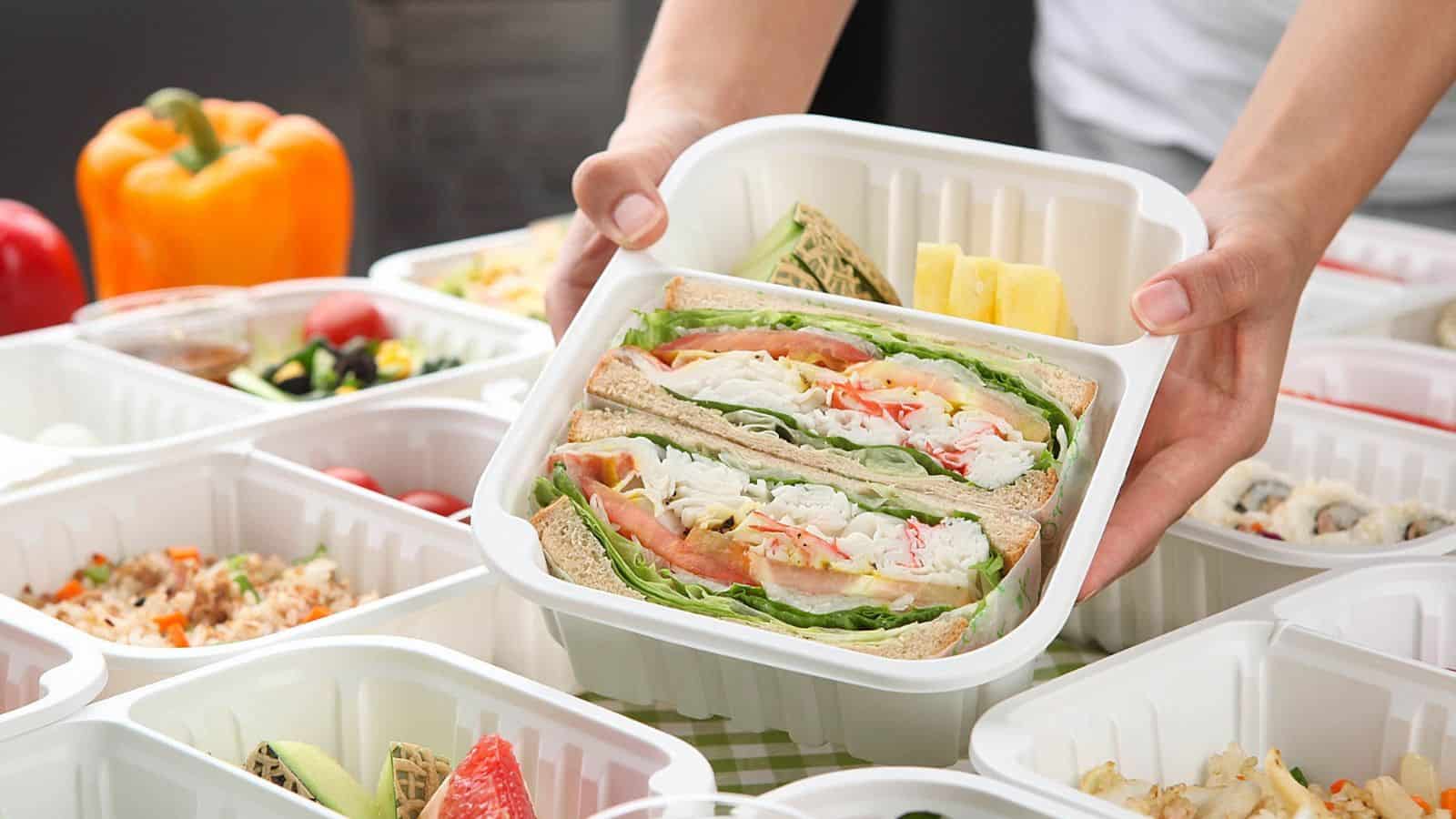
Flavored Potato Chips

These crispy snacks come in a variety of seasonings, from tangy barbecue to spicy jalapeño. Made from thinly sliced potatoes, they are deep-fried and coated with artificial flavors and preservatives to enhance taste and shelf life. While they are a quick and crunchy bite, their high sodium and fat content makes them less nutritious. Additionally, the presence of monosodium glutamate (MSG) and other flavor enhancers can be concerning for those looking to maintain a healthy diet. Despite their convenience, they are best enjoyed in moderation due to their limited nutritional benefits.
Instant Noodles
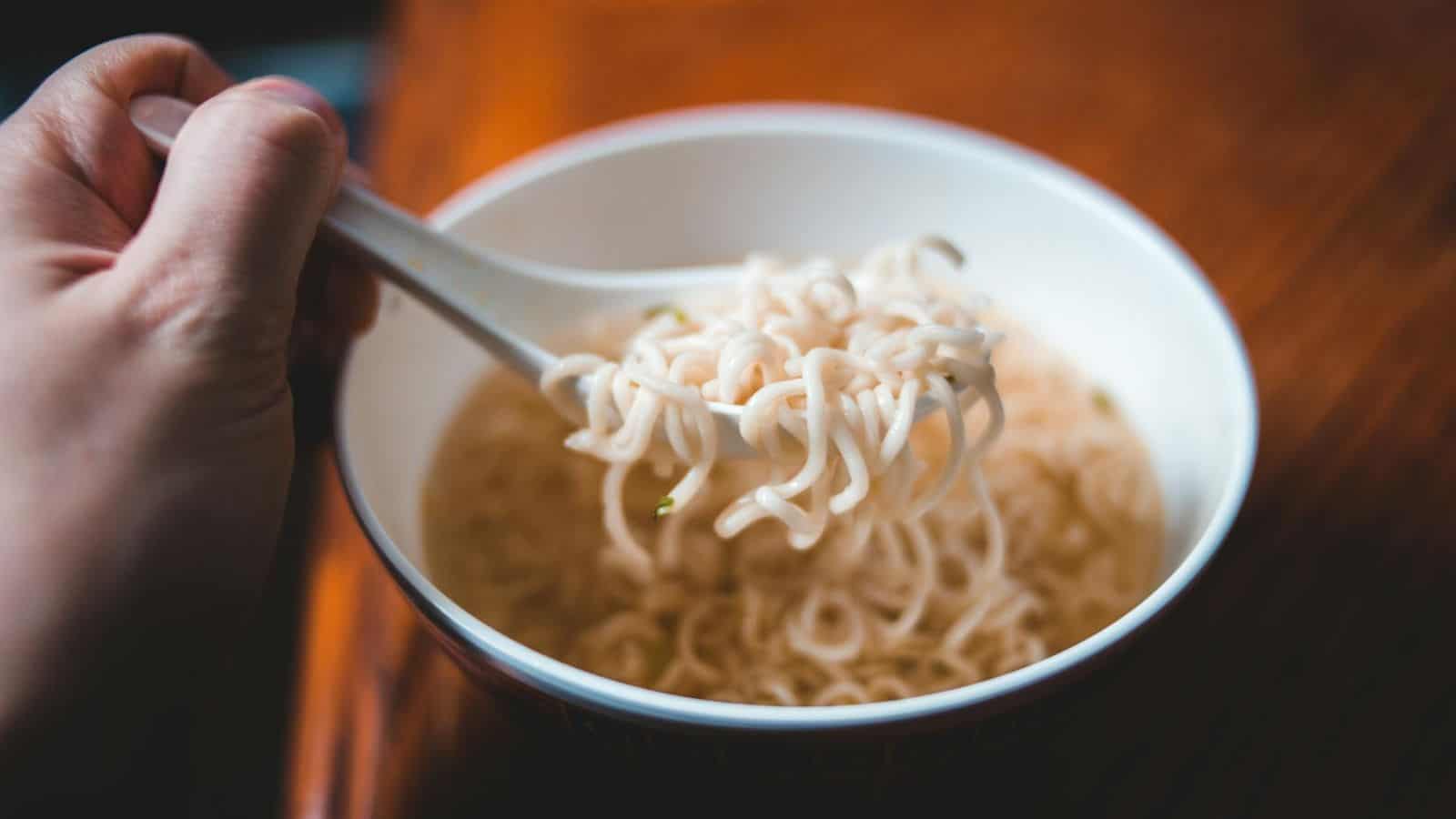
Quick and convenient, instant noodles are a popular choice for a fast meal. These noodles are pre-cooked and dehydrated, requiring only hot water to prepare. They often come with a packet of seasoning that contains artificial flavors, MSG, and preservatives. Despite their ease of preparation, they are high in sodium and lack essential nutrients. The noodles themselves are typically made from refined wheat flour, which supplies little fiber or protein. While they can be a lifesaver for busy days, relying on them frequently can contribute to poor dietary habits and nutritional deficiencies.
Processed Cheese Slices

These cheese slices are made from a blend of milk, whey, and various additives to create a smooth texture. They melt easily and are commonly used in sandwiches and burgers. However, they contain emulsifiers, artificial colors, and preservatives, which reduce their nutritional value compared to natural cheese. The high sodium content and presence of artificial ingredients can be concerning for those mindful of their health. While convenient, these slices often lack the rich flavor and nutritional benefits of real cheese, making them a less optimal choice for those seeking wholesome food options.
Sugary Breakfast Cereals
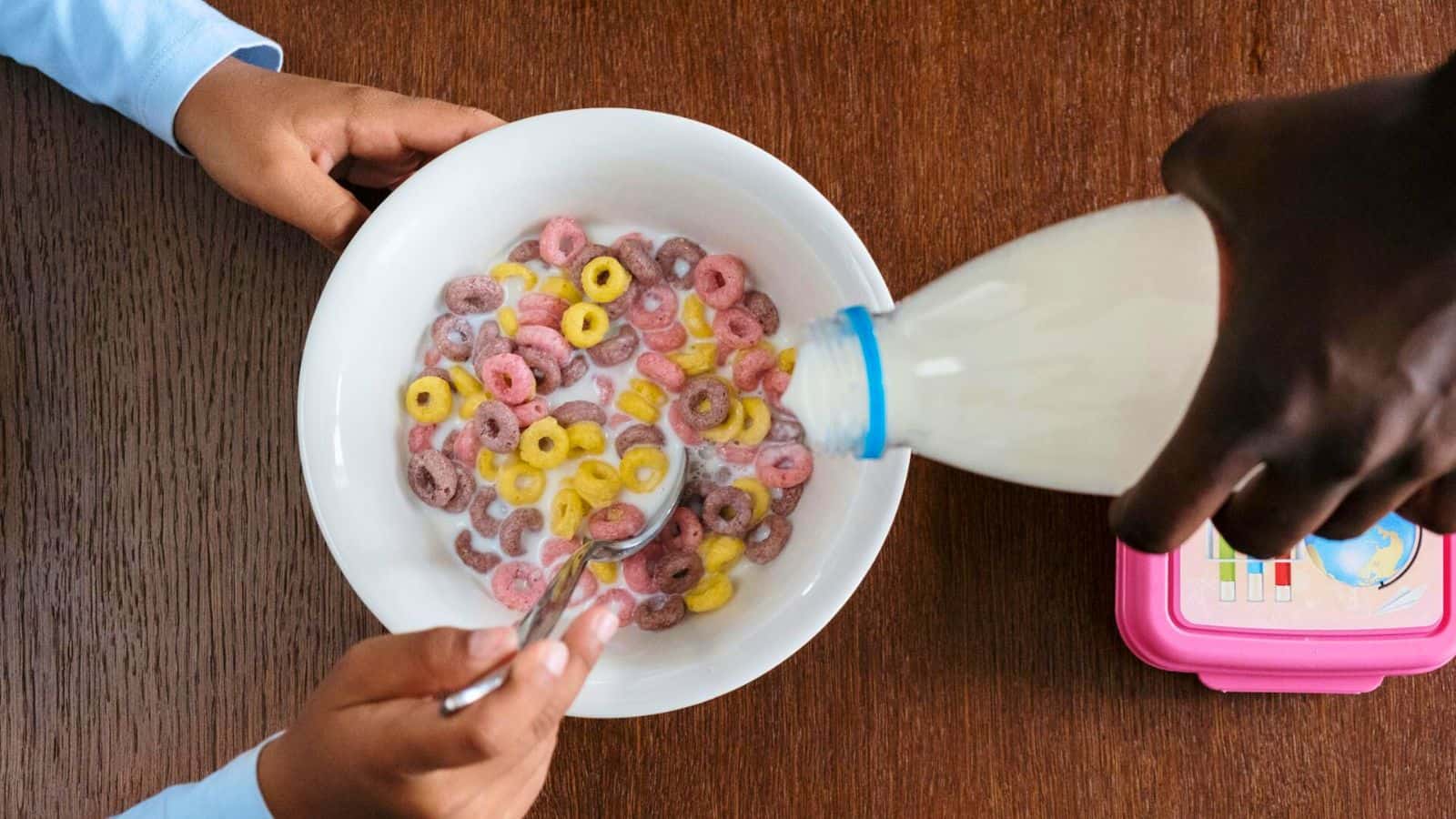
Often marketed towards children, these cereals come in vibrant colors and sweet flavors. They are made from refined grains and are coated with sugar, artificial flavors, and food dyes. While they are fortified with vitamins and minerals, their high sugar content and low fiber make them a less healthy breakfast option. The artificial colors and flavors can be particularly concerning for parents mindful of their children's health. Despite their eye-catching packaging and convenience, these cereals often contribute to unhealthy eating habits and can lead to issues like weight gain and poor dental health.
Frozen Dinners
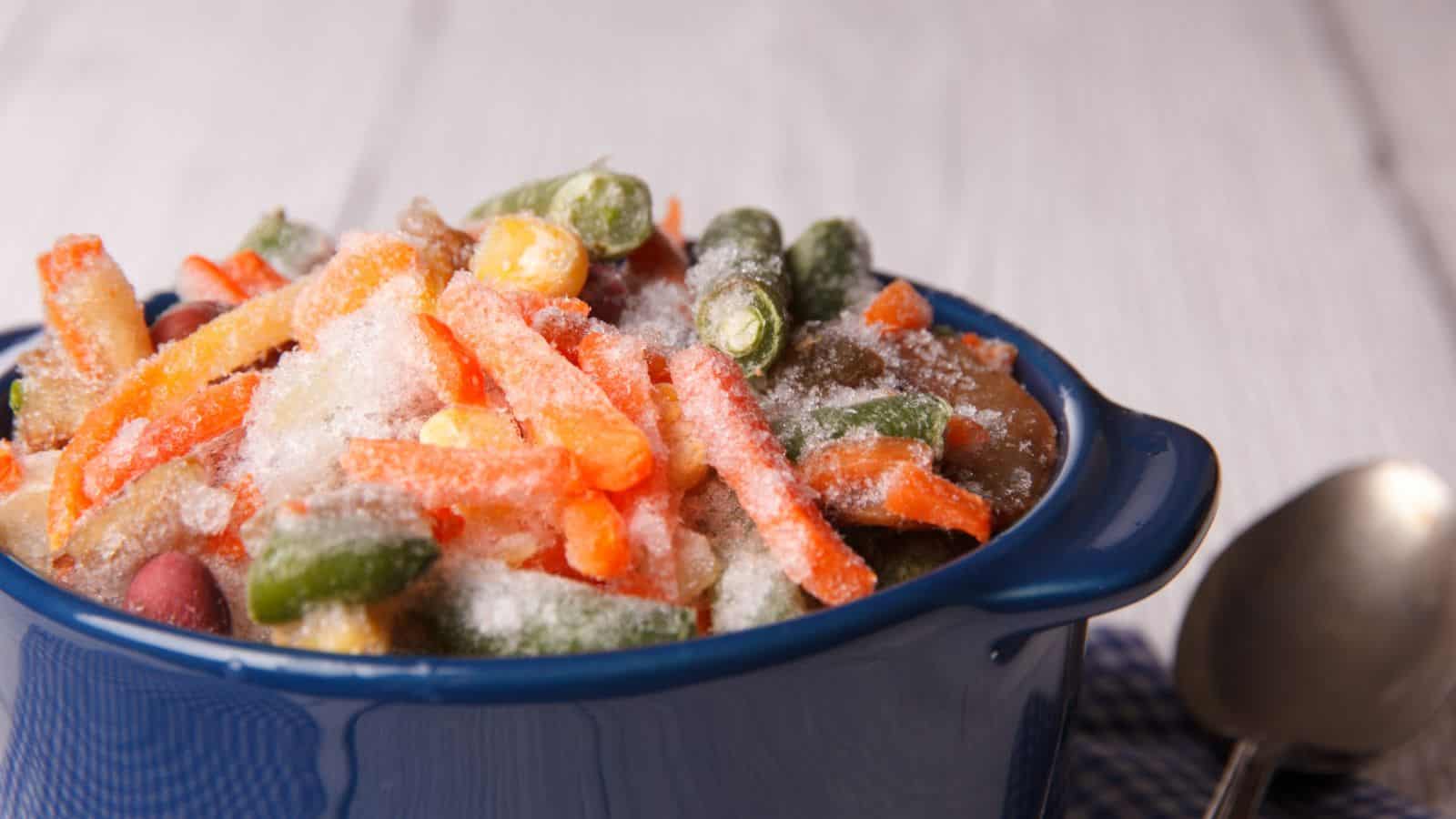
Convenient and easy to prepare, frozen dinners are pre-cooked meals that can be heated in a microwave. They come in various cuisines and flavors but often contain preservatives, artificial flavors, and high levels of sodium. These meals can be low in fresh vegetables and lean proteins, making them less nutritious. The convenience of these meals often comes at the cost of added sugars, unhealthy fats, and a lack of essential nutrients. While they are a quick solution for busy days, relying on them too frequently can lead to poor dietary habits and nutritional imbalances.
Soda and Soft Drinks

Popular for their sweet taste and effervescence, these beverages contain high levels of sugar or artificial sweeteners, along with caffeine and various flavorings. The carbonation adds to their appeal, but they have little to no nutritional value. Frequent consumption can lead to health issues like obesity, diabetes, and dental problems. The artificial colors and preservatives used to enhance their shelf life can also be concerning. Despite their refreshing taste, these drinks are best consumed sparingly due to their high sugar content and lack of essential nutrients.
Packaged Cookies
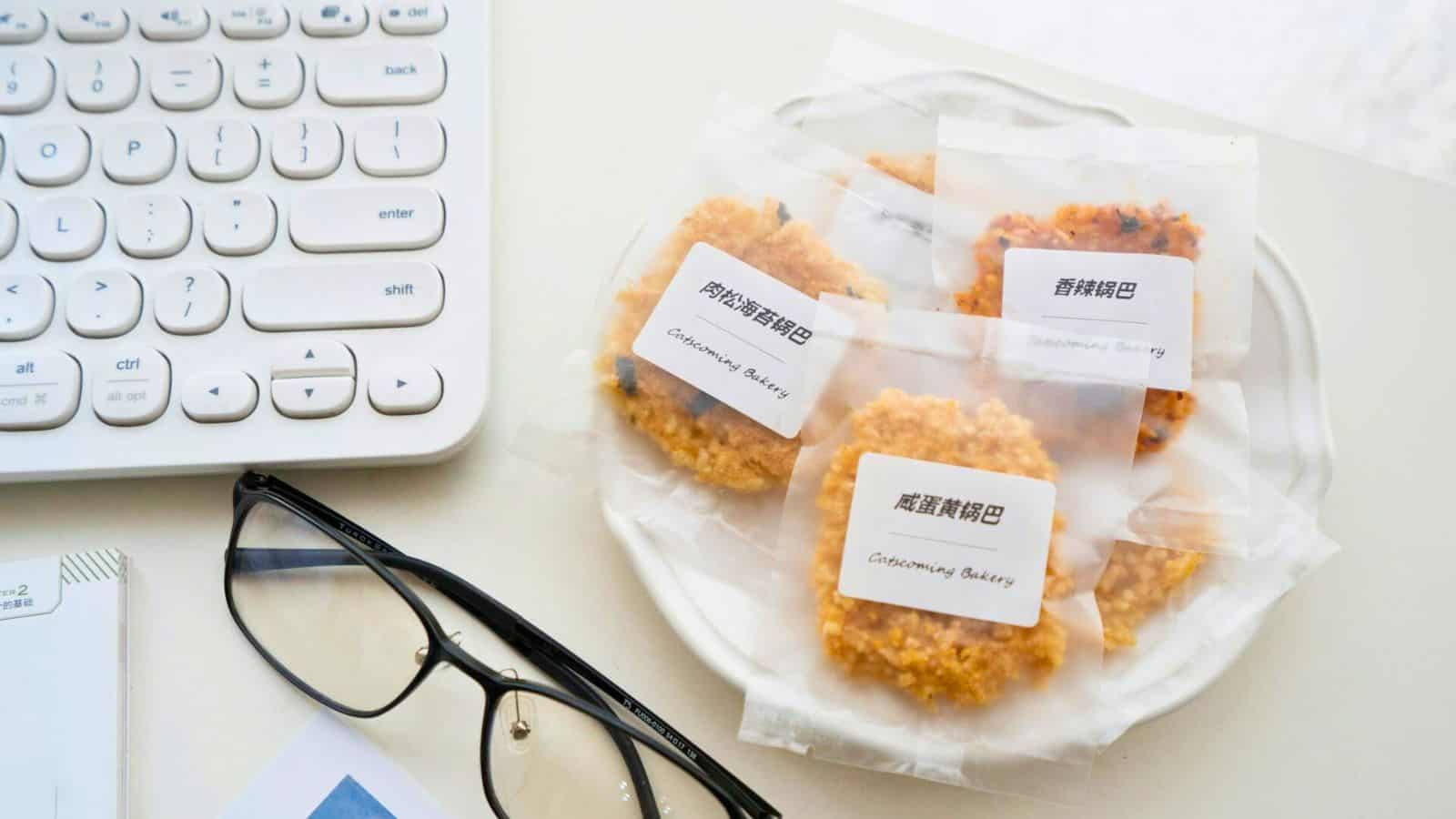
Sweet treats like packaged cookies come in a variety of flavors and textures, from chocolate chips to oatmeal raisin. Made from refined flour, sugar, and various artificial ingredients, they are designed to have a long shelf life. Preservatives, artificial flavors, and colorings are commonly used to maintain their taste and appearance. While convenient for a quick snack, their high sugar and fat content make them a less healthy option. The lack of fiber and essential nutrients means they contribute little to a balanced diet, making them best enjoyed in moderation.
Canned Soups
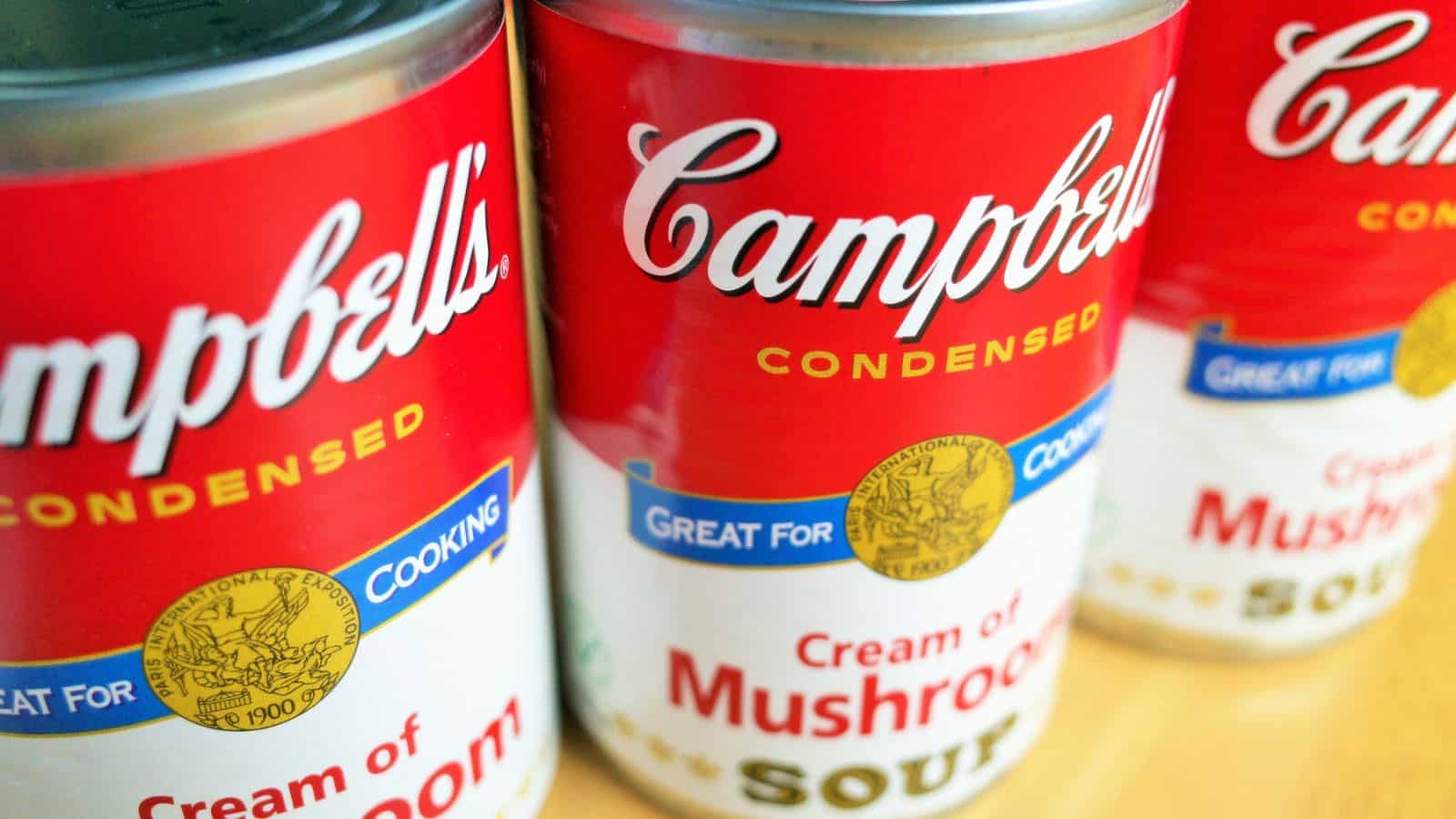
Convenient and easy to store, canned soups come in a variety of flavors, from chicken noodle to tomato bisque. They are pre-cooked and sealed in cans to extend their shelf life. However, they often contain high levels of sodium, preservatives, and artificial flavors. The vegetables and meats used are usually of lower quality compared to fresh ingredients. While they are a quick and easy meal solution, their nutritional value is often compromised by the presence of additives and a lack of fresh ingredients. Opting for homemade or low-sodium versions can be a healthier choice.
Microwave Popcorn

Easy to prepare by simply placing a bag in the microwave, this popular snack comes in various flavors such as butter, cheese, and caramel. The kernels are coated with oils, artificial flavors, and preservatives to enhance taste and shelf life. While popcorn itself can be a healthy whole grain, the added ingredients in microwave versions often include trans fats and high levels of sodium. The presence of diacetyl, a chemical used in artificial butter flavoring, can also be concerning. For a healthier option, consider air-popping plain kernels and adding your own seasonings.
Energy Drinks
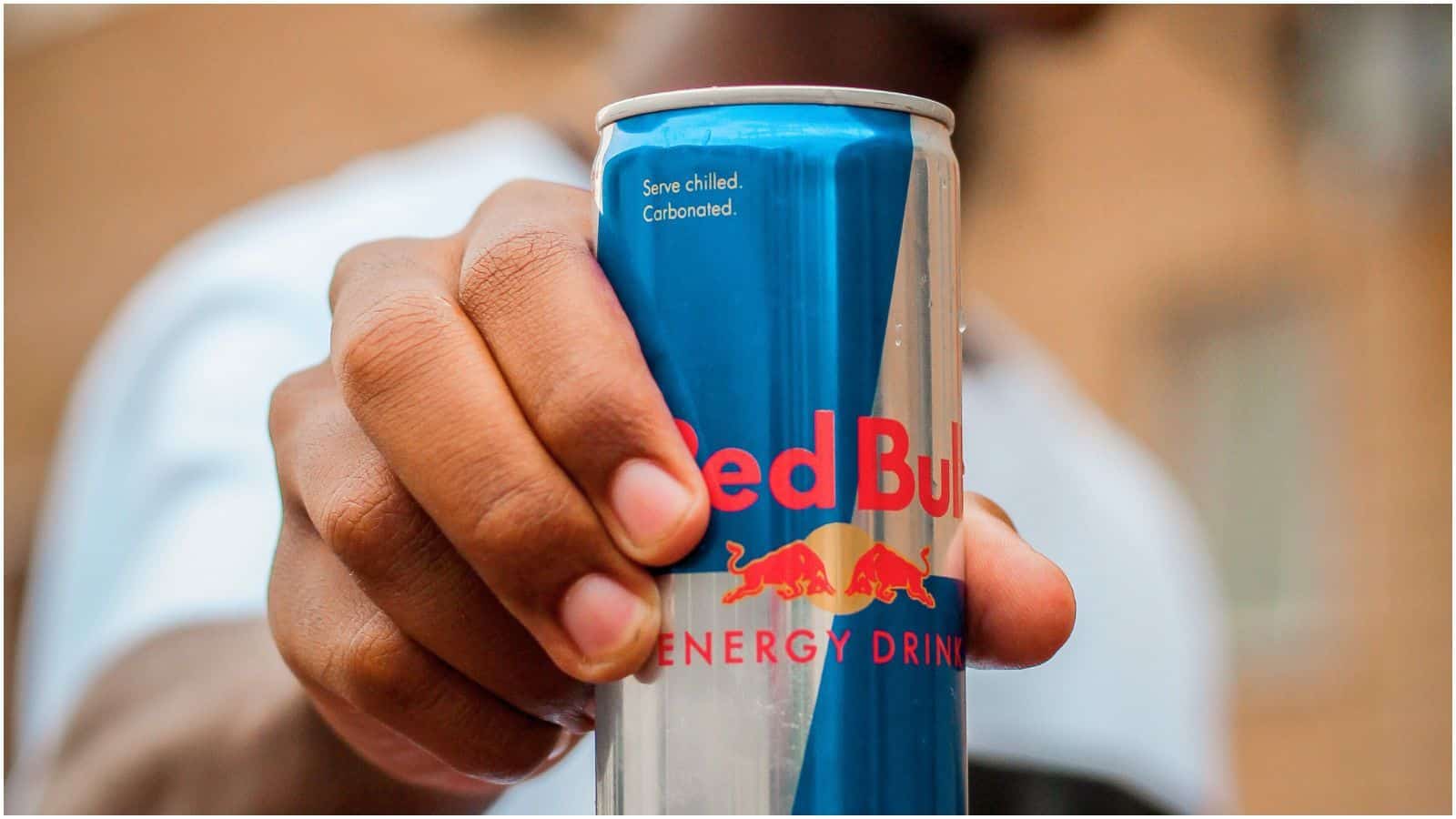
Designed to boost energy and alertness, energy drinks often contain high levels of caffeine, sugar, and various vitamins and amino acids. They come in a variety of flavors and are marketed towards those needing a quick energy boost. However, the high caffeine and sugar content can lead to health issues like increased heart rate, high blood pressure, and insomnia. Artificial flavors, colors, and preservatives are commonly used to enhance taste and shelf life. While they can deliver a temporary energy boost, frequent consumption is not recommended due to potential negative health effects.
Pre-packaged Lunch Kits
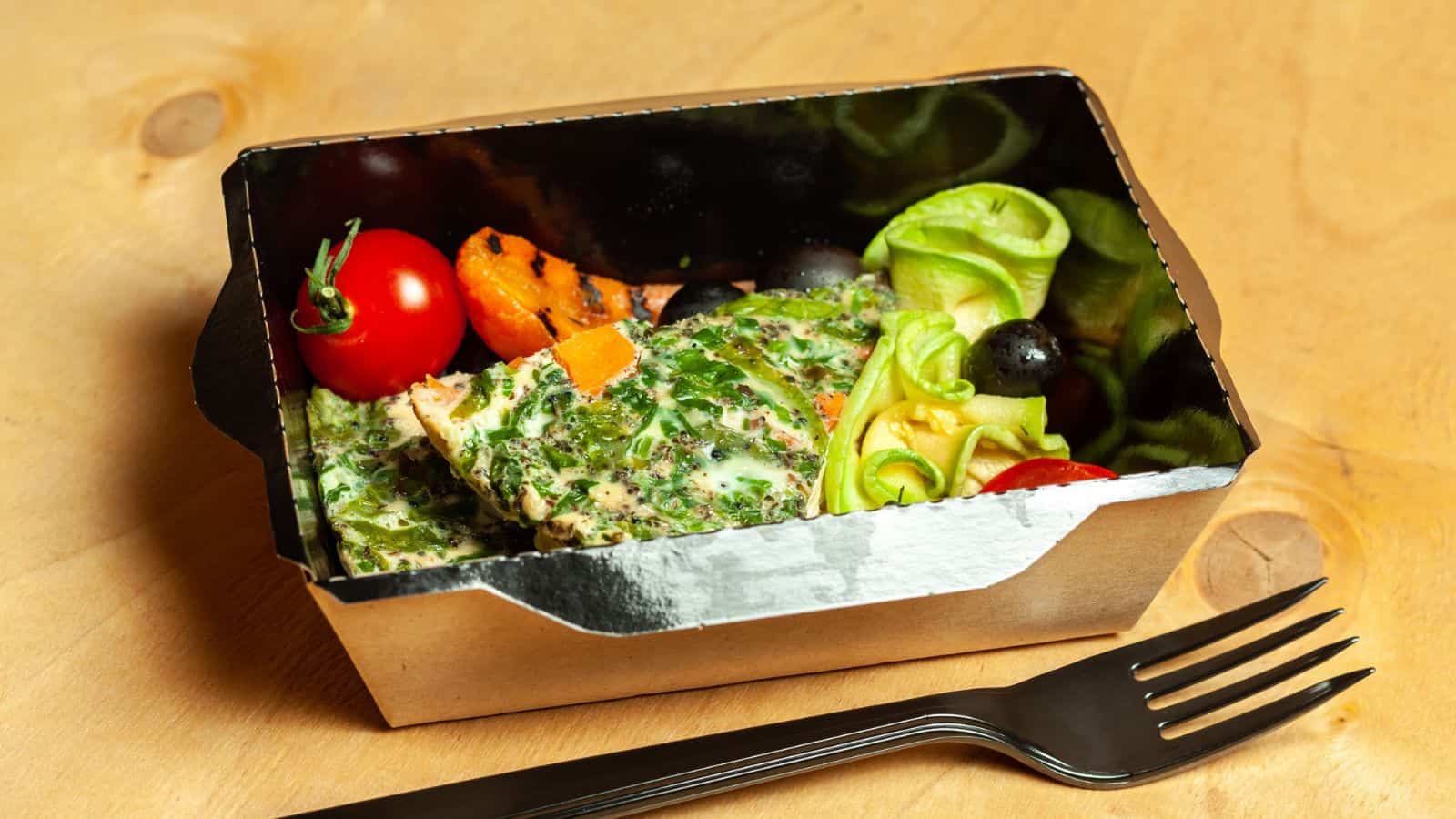
Often marketed to parents for their convenience, pre-packaged lunch kits include items like crackers, processed meats, and cheese. They are designed for quick assembly and easy consumption, particularly for school lunches. However, these kits are often high in sodium, preservatives, and artificial flavors. The processed meats and cheeses typically contain additives that reduce their nutritional value. While they save time, they have limited nutritional benefits and can contribute to unhealthy eating habits. Opting for fresh ingredients can supply a more balanced and nutritious meal for children.
Artificially Flavored Snacks
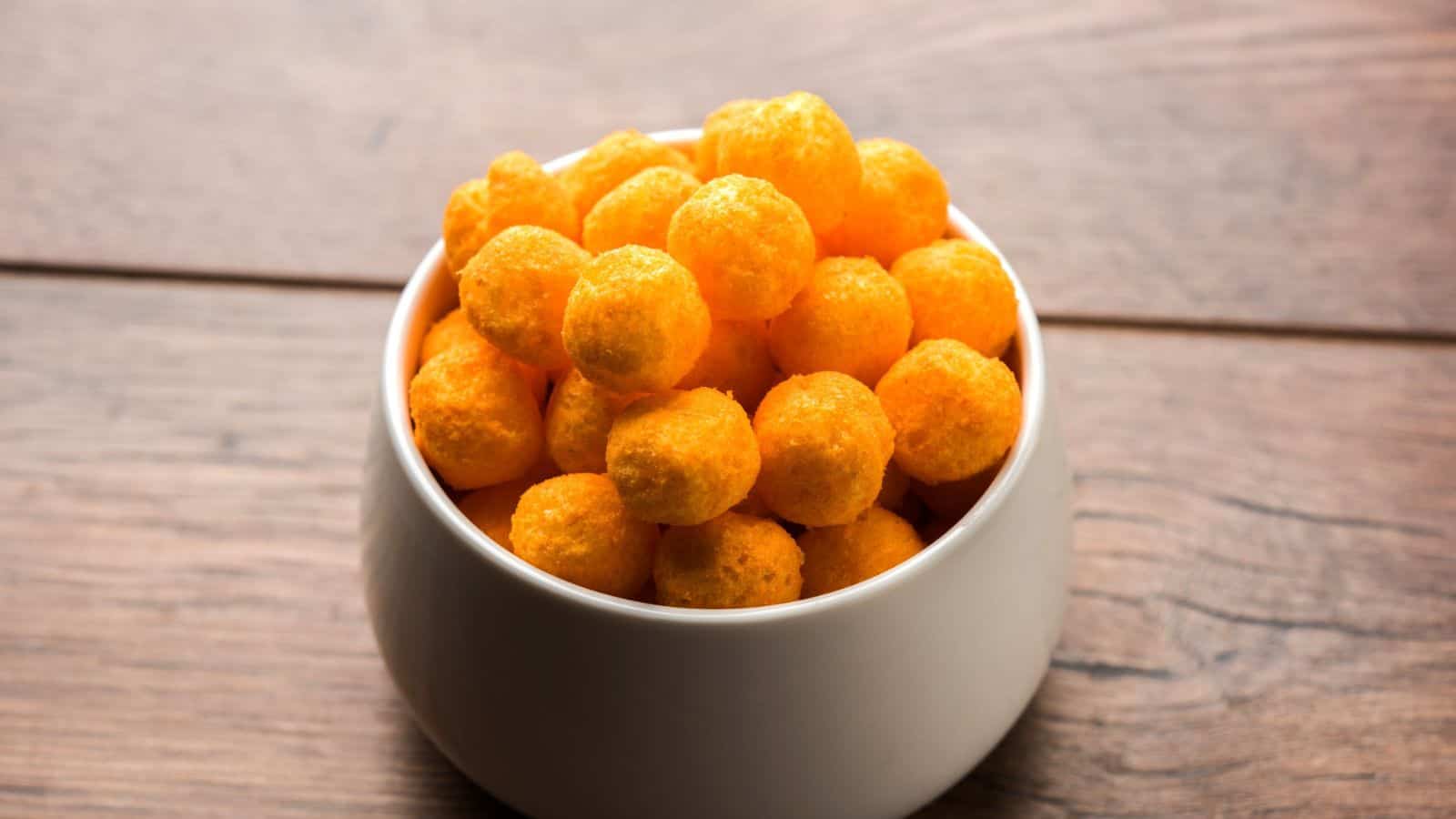
Snacks with artificial flavors come in a wide range of options, from fruit gummies to cheese puffs. They are designed to mimic the taste of natural foods but are made with synthetic ingredients. These snacks often contain high levels of sugar, sodium, and artificial additives to enhance flavor and shelf life. Despite their appealing taste and convenience, they lack essential nutrients and can contribute to poor dietary habits. The presence of artificial colors and preservatives can also be concerning for those mindful of their health. Choosing natural, whole-food snacks is a healthier alternative.
Frozen Pizza

A popular choice for a quick meal, frozen pizza is easy to prepare by simply heating it in the oven. It comes in various flavors and toppings but often contains preservatives, artificial flavors, and high levels of sodium. The crust is usually made from refined flour, and the toppings may include processed meats and cheeses. While convenient, frozen pizza has limited nutritional benefits and can be high in unhealthy fats and calories. Opting for homemade pizza with fresh ingredients can give you a more balanced and nutritious meal, making it a better choice for those seeking healthier options.
Commercial Salad Dressings
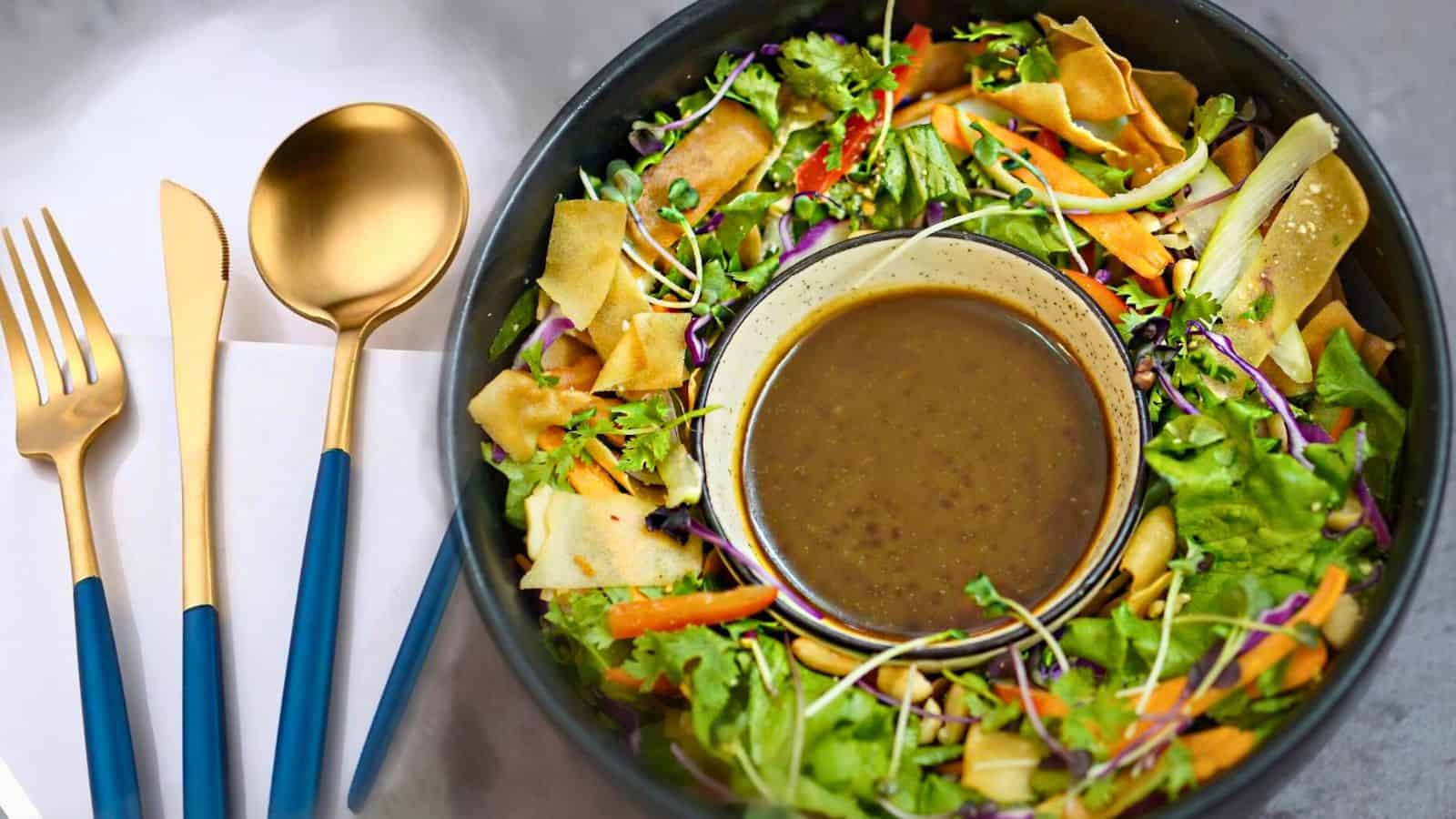
These dressings are available in a variety of flavors, from ranch to Italian, and are used to enhance the taste of salads. They often contain high levels of sugar, sodium, and artificial ingredients like preservatives and emulsifiers. While they add flavor, they can also add unnecessary calories and unhealthy fats to an otherwise healthy meal. The presence of artificial colors and flavors can be concerning for those looking to maintain a wholesome diet. Making homemade dressings with natural ingredients can be a healthier alternative, allowing for better control over the nutritional content.
Processed Meat Products
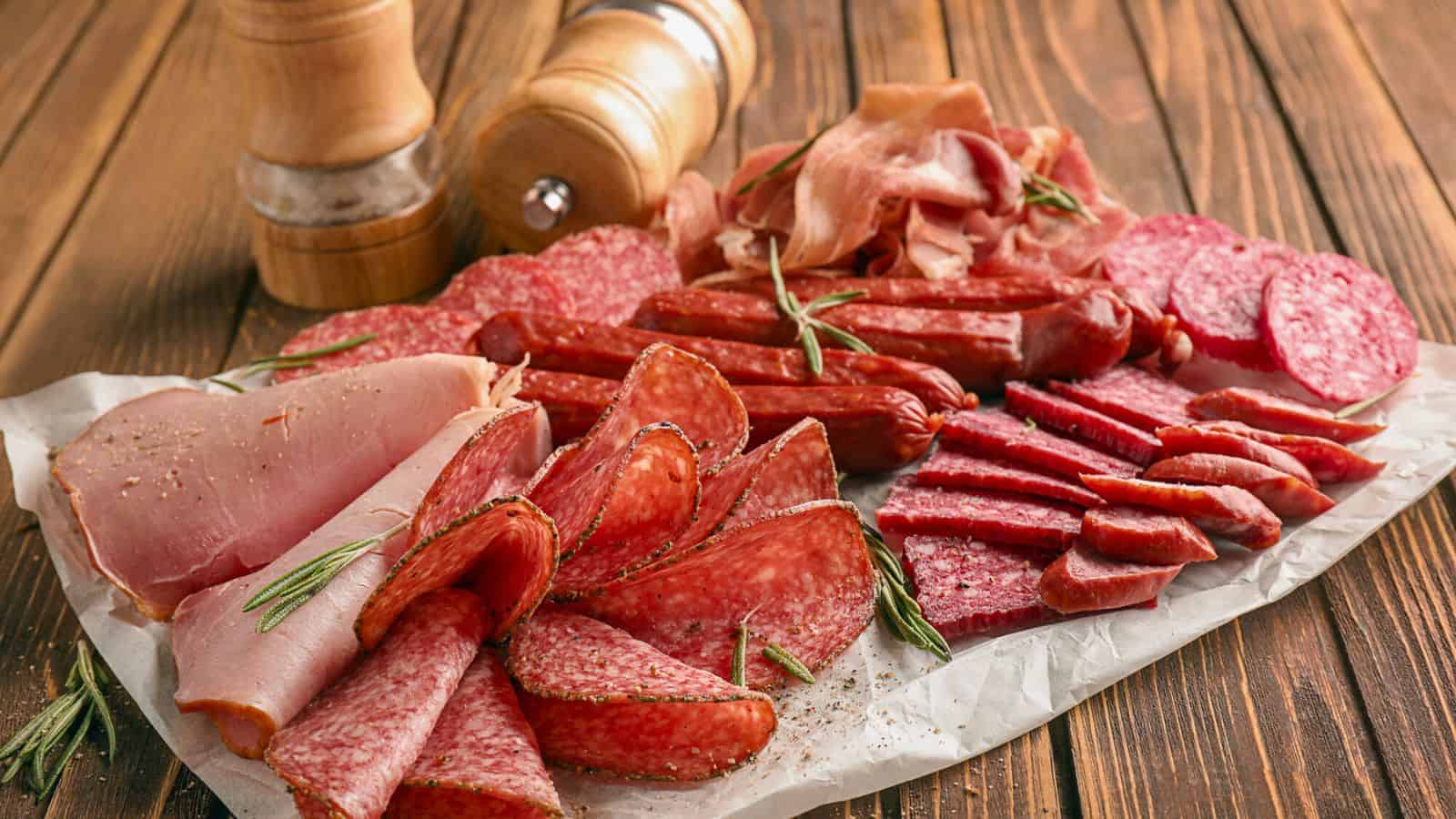
Items like hot dogs, sausages, and deli meats fall into this category. These meats are often cured, smoked, or treated with preservatives to extend their shelf life. They contain high levels of sodium, nitrates, and artificial flavors, which can be concerning for those mindful of their health. While convenient for quick meals, processed meats have limited nutritional benefits and can contribute to health issues like hypertension and heart disease. Opting for fresh, lean meats and preparing them at home can be a more nutritious and wholesome option for those seeking healthier meal choices.
Eat Smart, Not Synthetic

In the end, being mindful of what you put into your cart can make a world of difference for your health. While processed foods are convenient and often taste great, their high chemical content can outweigh any nutritional benefits. By taking the time to read labels and understand what you're consuming, you can make choices that are better for your body and overall well-being.
Opting for whole foods, fresh produce, and minimally processed items can supply the nutrients your body needs without the extra chemicals. Remember, it's about making informed choices that support a healthier lifestyle. So next time you're at the grocery store, take a moment to consider what's really in your food.
Why Your Favorite Grocery Items Are Getting Pricier By the Minute

Ever feel like your grocery bill is creeping up every time you shop? You're not alone. Prices are climbing, and it’s starting to hit where it hurts: our wallets. We all have those go-to items we grab without thinking, but these 15 common grocery foods are getting too expensive. Frustrating, we know!
So, what can you do about it? Being aware of these changes is the first step. By understanding why prices are rising, you can make smarter choices and maybe even find some budget-friendly alternatives. Let's get into why some everyday items are becoming too expensive to buy.
Read it Here: Why Your 15 Favorite Grocery Items are Getting Pricier By the Minute
Avoid These Ultra-Processed Foods the Next Time You're at the Grocery
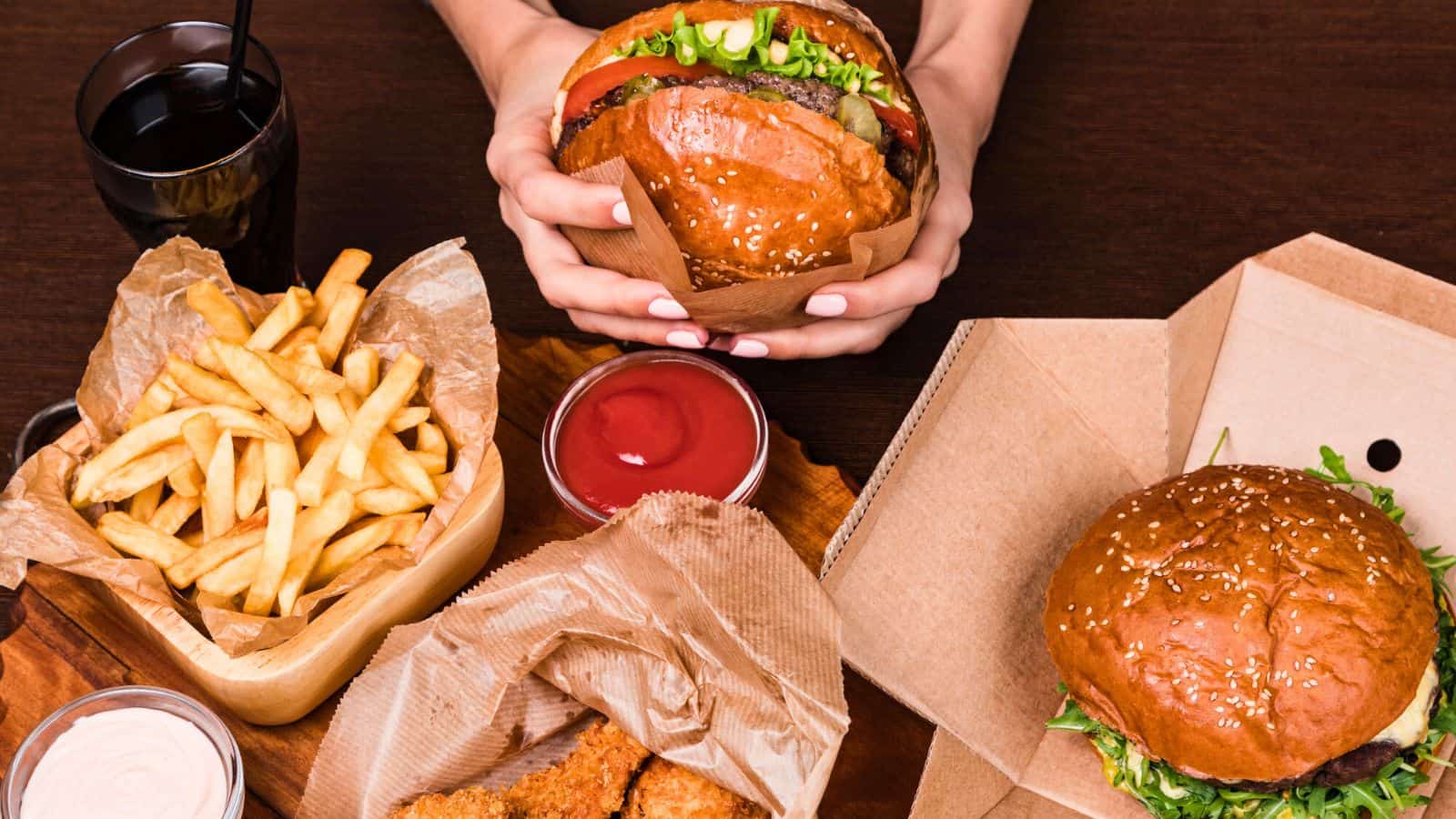
Let's face it: navigating the grocery store aisles can be a minefield. Everywhere you turn, there are brightly colored packages promising quick, easy meals or snacks. But not everything that catches your eye is good for you. In fact, there are 13 ultra-processed foods that can sneak unhealthy ingredients into your diet.
Making mindful choices about what you eat can have a significant impact on your health. By steering clear of certain ultra-processed foods, you can take a big step toward better health and more energy. Stick around to learn which foods to avoid and why it's a great move for your well-being.
Read it Here: Avoid These 13 Ultra-Processed Foods the Next Time You're at the Grocery



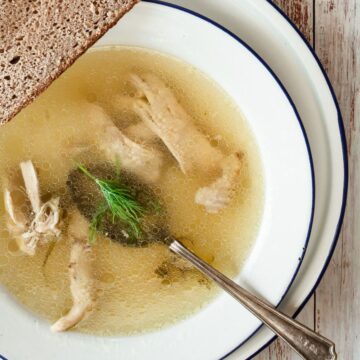


Tell Me What You Think!